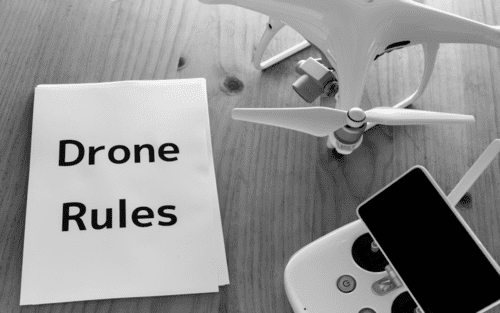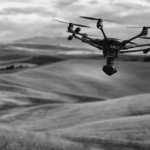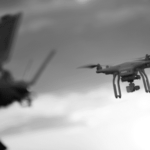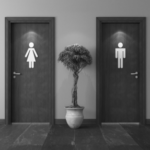Introduction & Drone Uses
Drones have soared to incredible heights, captivating both hobbyists and professionals alike. But in the world of drone operation, following the regulations set by the Federal Aviation Administration (FAA) is vital. It’s important to note that the FAA has distinct requirements for recreational and commercial drone operations. In this article, we’ll explore the contrasting regulations for each type of operation, shedding light on some key differences and implications for drone enthusiasts and professionals.
Recreational Use Versus Commercial Operations
Recreational drone operators engage in flying strictly for personal enjoyment, and not for work, business purposes, or for compensation or hire. However, the FAA has stressed that compensation, or the lack of it, is not the only determining factor of a commercial or recreational flight. Even volunteering to take photos for an organization such as a non-profit can be considered commercial use. Other commercial uses include taking photos to sell a property or service, roof inspections, and taking pictures of a high school football game for the school’s website. Depending on the use of your drone, different regulations may apply.
Regulations
The regulatory framework governing drones weighing less than 55 pounds defaults to Part 107, which establishes four distinct categories of operations. Generally, commercial drone operations are subject to more stringent regulations compared to recreational flight. Whereas commercial flights include strict adherence to regulations outlined in Part 107 (subject to waivers and exemptions), recreational flights benefit from the Exception for Limited Recreational Operations of Unmanned Aircraft created by Congress in 49 USC 44809.
Penalties
The penalty process starts with an investigation that may lead to an official civil penalty. If an individual does not agree with the penalty, they can request a hearing before an administrative law judge. General penalties can include denial of an application for a pilot certificate or a certificate of waiver, denial of a declaration of compliance, or suspension and revocation of any waiver, certificate, or declaration of compliance. Civil penalties can also result from using a drone for commercial use without a license and are potentially the most common violation. Each flight of the drone without a license can be considered a separate violation. One local example is a drone pilot in Minnesota flying without a commercial license to take photos for real estate listings. The individual received a $39,700 fine for doing so.
Conclusion
Whether you’re enjoying the pure joy of recreational drone flying or embarking on a professional journey with commercial drone operations, understanding the FAA’s distinct requirements is paramount. Recreational operators should ensure their drones fly in accordance with the appropriate guidelines to promote safety in our skies. Commercial operators, on the other hand, must obtain the Remote Pilot Certificate, register their drones, and strictly adhere to additional operational rules.
As the drone industry continues to soar to new heights, staying up-to-date with the FAA’s regulations and guidelines is crucial. Compliance with these requirements will not only ensure the safety of our airspace but also foster responsible and sustainable growth in both recreational and commercial drone operations. So, whether you’re capturing breathtaking shots or delivering goods from above, our team at SW&L Attorneys can help guide you with what regulations to follow. To get in touch with our team, call 701-297-2890 or email us at: info@swlattorneys.com.
This article is for informational purposes only and is subject to our disclaimer.










